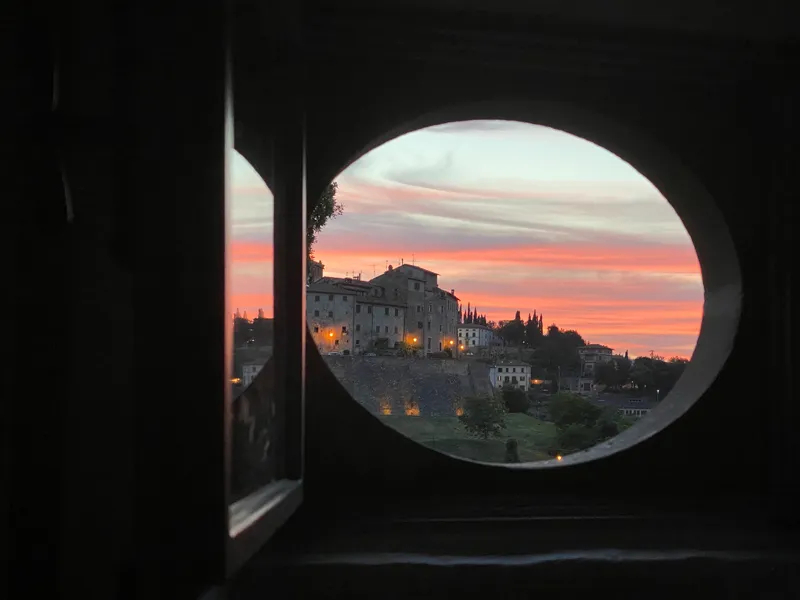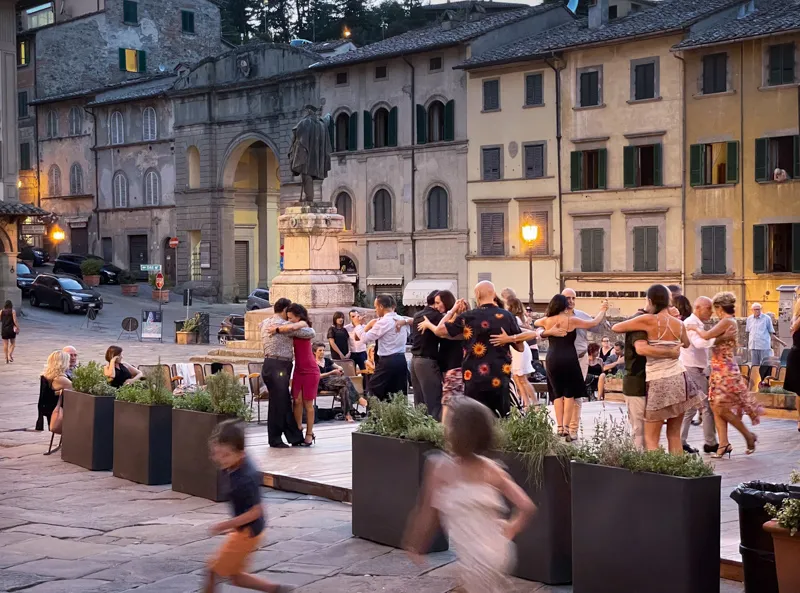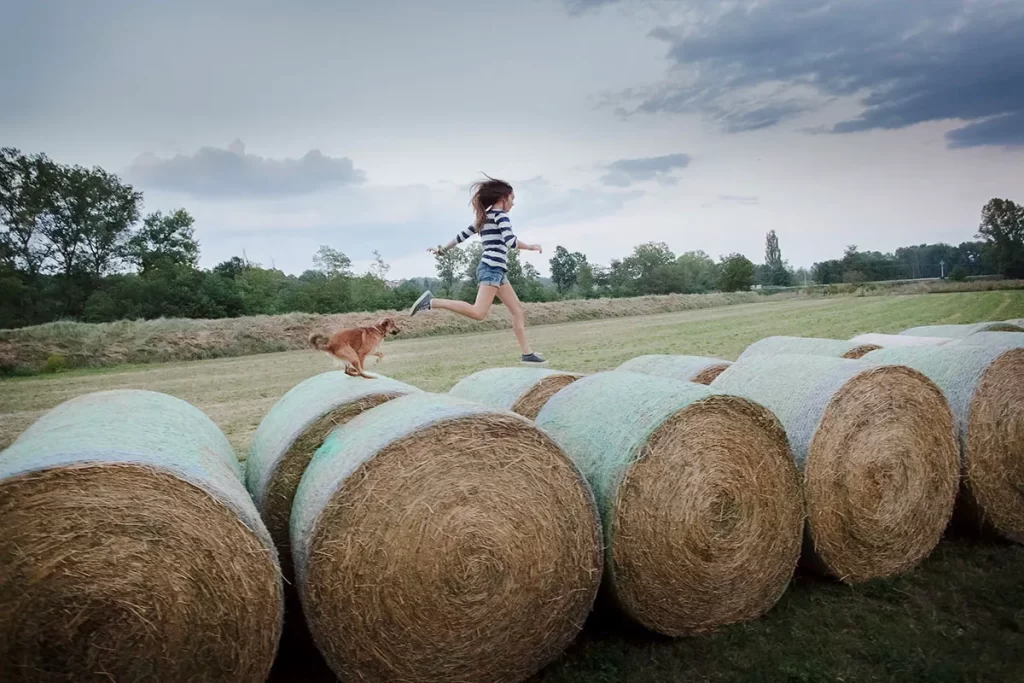
What a Decade in Italy Does to You
A few reasons why we are still here after twelve years.
Community is inescapable, in a way that is different from what I experienced in America. In a small example, when I go to a cafe to write, which is pretty often, I am the only person there who is alone. Literally. And I’m definitely the only ambiance-ruining sucker working on a computer. I have never seen a “to go” paper cup, except during Covid when the cafes were closed and everyone gathered outside to drink their espressos from tiny plastic cups, clustered with friends, chatting in the freezing cold. On my last trip to California, I was surprised by the change at Peet’s Coffee due to mobile to-go ordering. The long line of customers waiting for coffee and socializing was gone and I was the only customer physically in the store. The barista was swamped with orders coming in on his computer screen, and he never looked up, or made eye contact with me.
Here in Italy, trips to the cafe provide the cadence and spice for the day. People gather once or twice a day at the stand up bar, throw back very good shots of coffee, and laugh and joke with friends. They see the same group several times a day, yet there is always seems to be a sense of delight in getting together.

Self-acceptance and calm. We had a friend visit who runs a successful and demanding business, and is an author, and she was captivated by the co-owner of a local pizza place in the village square. This restaurant sells customized squares of pizza—one large sheet pan may contain a dozen different squares. The husband cooks and the wife takes orders, dispenses drinks, serves food, and works the register, all with unflappable calm. Even with twenty people jostling at the counter, all vying for her attention, she moves at the same pace, doesn’t seem frazzled or tense, and greets everyone with warmth and a look in the eye. She gets an enormous amount done, but without stress. My friend went back a second time to watch her in action.
My friend who works for a large, worldwide consulting firm in Milan has not found that this calm and self-acceptance scales to her workplace. She sees more of the dark side of Italy as there are so few good job opportunities that people who work at a company like hers will do anything to stay there, fueling long hours and a stifled culture. She feels like this hinders creativity and innovation.
After my mother died, several years ago, I shared the news with friends in the village and, without fail, got the same response. E’ la vita. “It’s life.” The first couple of times it happened, the response felt a little cold. But I’ve realized that it is part of this larger worldview of acceptance—certain things can be changed, but much cannot and it is better to embrace and accept.
Europe is small. I love to have adventures and the scale of this continent cries out for exploration. Within a two hour flight the options seem impossible to exhaust. Over the last decade we’ve traveled to Lebanon, Turkey, Sweden, Croatia, Corsica, Austria, the Netherlands, Switzerland, and Germany, and frequently get to the UK and France. All are inexpensive to reach—we’ve used a mix of trains (including a few memorable night trains), ferries, planes, and automobiles. I love that I can get to another world—architecture, language, food, attitudes—in less time than it would have taken me to drive from Northern to Southern California.
This sense of belonging to Europe has been profound for the kids. They have an expansiveness to their thinking and a range of future options that span countries and cultures. This excites and challenges them.
The historical scale feels as small as the geographical one. Millennia are crossed within in a few footsteps. It’s not infrequent that we are in places where Bronze Age discoveries merge into Etruscan, Roman, Visigoth, and Byzantine ones, and the march of time continues through medieval, the reconstruction after the bombings of WWII, and new construction. I am constantly brought face to face with my existence being a tiny blip in time, and I like that. Even now, as I type, I look over to the painting on the wall, and the terracotta on the floor, all of which date to the last time this house was remodeled— In 1777.

Raising kids has been easier. I discovered that our kids were a lot less fragile than I thought when we lived in Berkeley. They were twelve and eight when we left and I’d fallen into the trap of micromanaging—tried to influence which teachers they got, oversaw homework, searched for the “right” extracurricular activities, and encouraged certain friends over others. Turns out they needed none of that.
Here in Italy, they chose to go to the local village schools, not speaking any Italian at the start. They had enormous help from two lovely friends of ours during the first year, who supported them with language and homework, and then they picked up the reins themselves. My not meddling encouraged their growth as independent and self-managed learners (and people), which was already who they were at their core.
It’s a lot safer here than it was in our old neighborhood in California so they had more physical freedom from the start. When Sebastian was eight, I’d often have no idea where he was. But the village is small, the center car-free, and there was almost nothing that could go wrong. He reveled in this freedom—though he did discover that his every move was being watched by a network of grandmothers—an example of which I will share soon.
Donella got her scooter license, and a Vespa, when she was 14. It’s the way it is done here—give kids a chance to learn on scooters before they get their license to drive a car at 18. I was terrified every time she left the driveway, but a sense of autonomy and freedom at that age seemed like too important a thing to say no to.
Stunning beauty is almost everywhere I look. It fills my very being.

I live slightly out of focus. I’ve always had bad vision and yearned for things around me to be crystal clear. This myopia has spread to most elements of my life in Italy. Due to language, culture, social networks, and village history I often don’t know exactly what is going on. This can be frustrating, like when I’m at a doctor or the vet. I get about three or four lines down from the big “E” on the eye chart of understanding, but nowhere near the fine print at the bottom. To offset this is the delight of the “Flaneur Effect”. One of the definitions of flaneur is “the connoisseur of the street.” Sometimes a bit of blur can make other things pop more clearly. That has been one of my great discoveries of this adventure, that my type A self doesn’t have to know everything in an attempt to control it all. And that there is great pleasure, and a different kind of understanding, in stepping back and attempting to observe new things through the fog.
Thanks to everyone reading and sharing, and especially to my paid subscribers on Substack, who are putting fuel in my writing tank.






No Comments